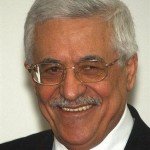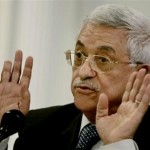Israel-Palestine: No UN Progress on Goldstone Report on GazaTranscript: The Palestinian Authority Draft to UN Human Rights Council (15 October)Receive our latest updates by email or RSS SUBSCRIBE TO OUR FEEDBuy Us A Cup of Coffee? Help Enduring America Expand Its Coverage and Analysis
On Friday
the United Nations Human Rights Council endorsed the Goldstone Report, which found evidence of war crimes by both Hamas and Israel in the Gaza War. The vote was 25-6 with 16 abstentions. The US opposed the resolution while Britain and France did not vote. (The full list is at the bottom of the entry.)
The five-page resolution was remarkable for two reasons. First, it not only condemned Israeli crimes during Operation Cast Lead but also, beyond the war, denounced Israeli human rights violations in east Jerusalem, the West Bank, and Gaza. Second, although Goldstone Report cites both Hamas and Israel, the resolution explicitly names only Israel as a violator of international law.
Goldstone criticized the UN decision to condemn only Israel, saying that the wording of the resolution was unfortunate.
Israel's Foreign Ministry rejected the resolution and called the decision "unjust":
Israel will continue to exercise its right to self-defense and to preserve the security of its citizens.
Israel believes that the decision harms efforts to protect human rights in accordance with international law and hinders efforts to promote the peace process as well as encouraging terror organizations around the world.
Israel thanks the countries that supported our position, and those who, with their vote, voiced their opposition to the unjust decision which ignores the murderous Hamas attacks against Israeli citizens... The decision ignores the fact that the Israel Defense Forces took unprecedented measures to avoid harming innocent civilians, and the fact that terror organizations used civilians as human shields in Gaza.
In contrast, Hamas welcomed the decision and said that they hoped that it would lead to "the beginning of the prosecution of the leaders of the occupation". The Palestinian Authority said that a follow-up on implementation of the recommandations in the report, "to protect the Palestinian people from Israeli aggression", was needed.
This may be the end of the line, however, for the report. The resolution asks that the Security Council forward the findings to the International Criminal Court, but the US, France, and Britain are unlikely to support the move. Indeed, with substantive action unlikely, the resolution may be an unexpected victory for Israel, with the United Nations proving its "one-sided position".
FOR the resolution: Argentina, Bahrain, Bangladesh, Bolivia, Brazil, Chile, China, Cuba, Djbouti, Egypt, Ghana, India, Indonesia, Jordan, Mauritius, Nicaragua, Nigeria, Pakistan, Philippines, Qatar, Russia, Saudi Arabia, Senegal, South Africa and Zambia
AGAINST the resolution: United States, Hungary, Italy, Netherlands, Slovakia and Ukraine
ABSTAINING: Belgium, Bosnia, Burkina Faso, Cameroon, Gabon, Japan, Mexico, Norway, Korea, Slovenia, Uruguay, Britain, France, Madagascar, Kyrgyzstan and Angola
 Thursday, October 29, 2009 at 9:13
Thursday, October 29, 2009 at 9:13  Just before the arrivals of the U.S. Mideast special envoy George Mitchell and Secretary of State Hillary Clinton in Israel, the declaration of Palestinian Authority leader Mahmoud Abbas that he would resign or decline to run in next January's elections have been exposed as a bluff.
Just before the arrivals of the U.S. Mideast special envoy George Mitchell and Secretary of State Hillary Clinton in Israel, the declaration of Palestinian Authority leader Mahmoud Abbas that he would resign or decline to run in next January's elections have been exposed as a bluff. Just before the arrivals of the U.S. Mideast special envoy George Mitchell and Secretary of State Hillary Clinton in Israel, the declaration of Palestinian Authority leader Mahmoud Abbas that he would resign or decline to run in next January's elections have been exposed as a bluff.
Just before the arrivals of the U.S. Mideast special envoy George Mitchell and Secretary of State Hillary Clinton in Israel, the declaration of Palestinian Authority leader Mahmoud Abbas that he would resign or decline to run in next January's elections have been exposed as a bluff.
 Mahmoud Abbas, the leader of the Palestinian Authority, is using every means available to press Washington on the Israel-Palestine issue. It emerged yesterday that last week
Mahmoud Abbas, the leader of the Palestinian Authority, is using every means available to press Washington on the Israel-Palestine issue. It emerged yesterday that last week  On Sunday,
On Sunday,  On Friday
On Friday